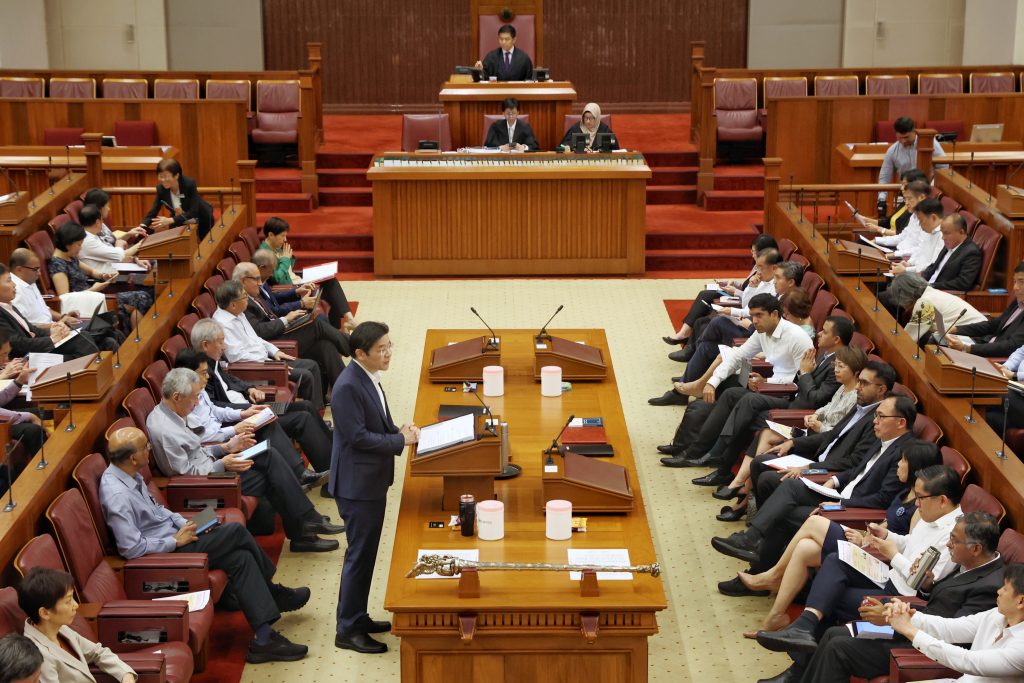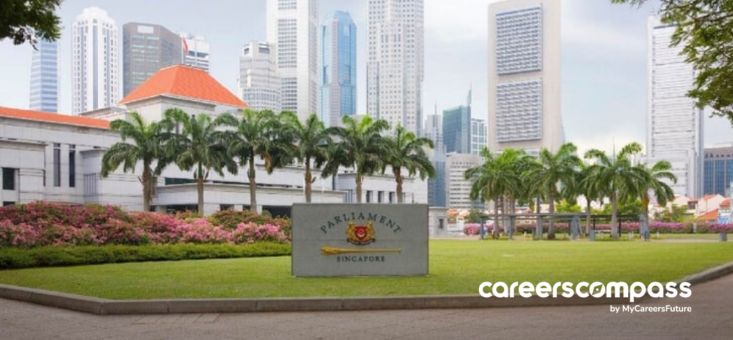If it wasn’t apparent how important building national and individual resilience is to the Singapore government, it was certainly clear after Deputy Prime Minister (DPM) Lawrence Wong’s Budget 2023 speech in Parliament.
DPM Wong, also our Finance Minister, mentions the word “resilience” 22 times in his Budget statement! It’s clear that much of Singapore’s future game plan is about helping our local workers seize new opportunities in the post-Covid economy to safeguard our jobs and earning power in an uncertain global economy.
Here’s a closer look at some of the key areas the government is looking to build resilience for Singapore workers below.

Building resilience in Singapore workers’ earning power and wages
During his Budget 2023 speech, DPM Wong reflected: “As many have observed, 2022 was a year of brutal inflation worldwide.”
“By the end of last year, global inflation was around 9%. Inflation reached historic levels in many advanced economies – in the US, consumer prices were the highest in four decades; in Germany, they were the highest in nearly half a century.”
“Singapore, too, had to contend with these inflationary pressures.”
In addition, he also shared how the world economy is moving towards a dangerous dynamic of greater economic nationalism and protectionism.
“The US in particular is determined to establish a clear technological lead over China, especially in critical industries like semiconductors and green energy,” he shared.
“It (the US) has banned the flow of high-end chips and chipmaking to China and is engaging its allies around the world to do the same.
“China, in turn, is investing in its own “little giants” to achieve technological self-reliance.
“We are seeing a huge contest for leadership in key technologies, which is likely to escalate with time.”
Unfortunately for us, an era of zero-sum thinking has begun, DPM Wong said. It will be a world that is less hospitable to small economies like Singapore, which have long thrived on an open, rules-based multilateral system.
He added that Singaporean workers cannot assume that we can continue to be successful by doing the same things as we have in the past.
He then shared the importance of uplifting the wages for those with lower incomes and sustaining real income growth for middle-income workers.
The reality is that even after the current inflation surge moderates, inflation may stabilise at a higher trend level globally, and in Singapore, than what we were used to in the last few decades.
“The era of globalisation that kept goods at highly competitive prices all over the world is over.
“Countries are now relooking and adjusting their supply chains. Instead of buying from the cheapest, they are prepared to accept lower efficiency and higher costs to prioritise diversification and strategic resilience. These trends are pushing up inflation everywhere, including Singapore.
As such, DPM Wong announced that lower-wage workers would continue to get career progression and wage support through the Progressive Wage Model (PWM), which was extended in 2022 to more sectors and jobs.
The government will also enhance the PWM’s co-funding support or wage increases in the qualifying year of 2023 and top up the PWM’s fund by $2.4b.
This means that in 2023, the government will continue to co-fund up to 75% of pay increases for workers earning a gross wage of up to $2,500 a month, which will taper down over time until 2026. A lower co-funding ratio will apply for those earning above $2,500 and up to $3,000.
Wage boosts for older workers, persons with disabilities and ex-offenders
Specific groups of workers will also get a wage boost in Budget 2023, it was revealed.
DPM Wong said: “To support employers to hire persons with disabilities (PwDs), we will enhance the Enabling Employment Credit to cover a larger proportion of wages and a longer duration for PwDs who have not been working for at least six months.
“We (the Singapore government) know many PwDs want to work, and if given the chance, have valuable skills to offer. As a society, we should give them the opportunity to do so.
Read more: Why Employers Are Keen to Hire Singaporeans With Disabilities
The Budget will also introduce a new Uplifting Employment Credit in the form of a time-limited wage offset to encourage firms to employ ex-offenders.
The Part-time Re-employment Grant will also be extended to 2025 to encourage employers to offer part-time re-employment, other flexible work arrangements, and structured career planning for senior workers.
Read More: How This Singaporean Found Employment as an Ex-Offender
Last but certainly not least, the Senior Employment Credit will be extended to 2025 for older workers. The scheme allows employers who hire Singapore senior workers aged 55 and above and earn up to $4,000 monthly to receive wage offsets. (Here are jobs where old is gold, especially after Singapore’s retirement age got raised!)
DPM Wong admitted that Singapore does not have much influence over the global inflation outlook. “But our best strategy to cope with inflation is to make ourselves more productive and competitive – so that our workers earn more, and the increase in earnings can more than makeup for the higher prices.”
Indeed, this was what happened in 2022 – real incomes grew by 2.0% for the median worker and by a higher 4.7% for a worker in the 20th percentile. Despite higher prices, we are still better off in real terms, thanks to policies such as the PWM.
DPM Wong continued: “We must therefore press on with economic restructuring and transformation, help businesses raise their productivity, and help workers upgrade their skills at every opportunity.”
Read More: Understanding Singapore’s Progressive Wage Model: A Guide for Lower Wage Workers

Building a more resilient and improved reskilling and upskilling process for Singapore workers
As such, DPM Wong also explained new strategies on how the Singapore government wants to support workers and jobseekers with a better system of reskilling and upskilling so that they can be re-trained and placed into new jobs, and bounce back from career setbacks.
He said: “Ultimately, the value we create as an economy must benefit Singaporeans in the form of wage growth and job opportunities. And this is why we have invested and will continue to invest heavily in our people.”
Through SkillsFuture, we are providing strong support for both employers and individuals to invest in upskilling, he added, and the results so far have been encouraging.
But we have to do more and shift our efforts into higher gear as we enter an era of greater volatility and economic disruptions.
As part of the Forward Singapore exercise, the Singapore government is studying several policy moves to strengthen our SkillsFuture ecosystem further, enhance support for displaced workers, and improve pathways to better jobs.
DPM Wong shared in his Budget 2023 speech that its focus would be to ensure that training translates into good employment outcomes.
He acknowledged that current reskilling and upskilling programmes could vary in quality.
Some lead to recognised qualifications or help workers gain specialised skills that are sought after by the industry. But others may not be so relevant to industry needs.
Workers and jobseekers may not know what training programmes to go for or what competencies and skills they need to secure better jobs.
Employers, especially SMEs, may also be unfamiliar with the training landscape and often struggle to fill job vacancies despite available jobseeker pools.
Therefore, there is a need to develop labour market intermediaries who can work with industry, training, and employment facilitation partners to optimise training and job placement.
These intermediaries, which DPM Wong called “Job-Skills Integrators”, will work with industry, training and employment facilitation partners in order to:
- Engage industries to understand their manpower and skill gaps
- Work with training providers to update existing training programmes or develop new ones to close skill gaps
- Work closely with employment agencies, get buy-in from industry partners and unions, and help them identify Singaporean workers with the right aptitude
This initiative will begin in the precision engineering, retail and wholesale trade sectors, where there is a higher concentration of mature workers and SMEs.
Ultimately, DPM Wong encouraged employers and workers to make the most of the support that the government is offering in Budget 2023.
“Upgrade your businesses. Invest in innovation and training. Reskill and upskill to stay competitive and seize new opportunities.
“This is how we will continue to achieve quality growth in an economy that works for all!”
Follow us on LinkedIn for more expert career guidance and industry insights: Workforce Singapore LinkedIn
Stay updated with the latest trends, job market shifts and career health advice from WSG.
















